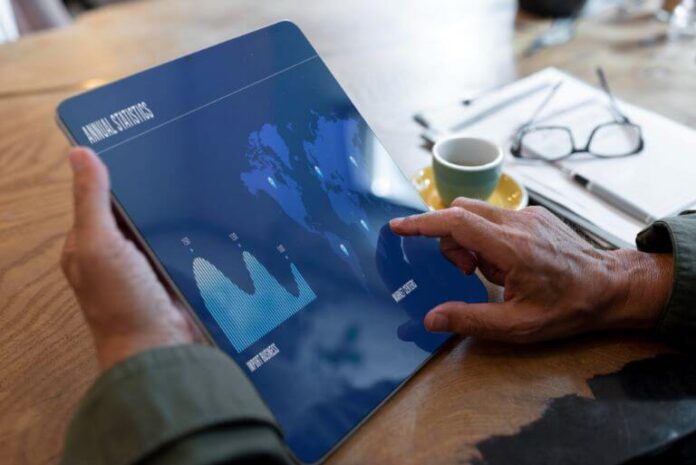Have you ever wondered how artificial intelligence (AI) transforms healthcare, particularly in remote patient monitoring? As technology advances, AI plays a critical role in enhancing patients’ quality of care, even when they are miles away from their healthcare providers. Healthcare AI consulting is helping medical institutions adopt innovative AI-driven solutions that improve monitoring systems, allowing for timely interventions and personalized care. Let’s explore how AI is shaping the future of remote patient monitoring and its significant impact on healthcare systems worldwide.
1. Real-Time Health Data Collection and Analysis
AI allows healthcare providers to collect and analyze health data in real time. Wearable devices, smart sensors, and AI-powered platforms can continuously monitor a patient’s vital signs, such as heart rate, oxygen levels, and blood pressure. AI processes this data and identifies patterns that might indicate potential health issues. With healthcare artificial intelligence consulting, providers can implement systems that analyze this data effectively and notify clinicians when irregularities occur, leading to timely interventions. This real-time monitoring reduces hospital visits and improves patient outcomes by detecting problems early on.
For years, data has been an integral part of the daily work of healthcare providers But the rise of AI has opened new doors for the healthcare industry to better serve patients.
Sand Technologies states, “Healthcare providers have long used data analytics to accelerate assessments, diagnoses and treatments. Now, AI is helping them to find and address underserved populations, ensuring that potential trials and treatments consider the full spectrum of possible patients.”
2. Personalized Care and Predictive Analytics
One of the biggest advantages of AI in remote patient monitoring is its ability to offer personalized care. AI uses predictive analytics to assess individual patient data, comparing it with broader datasets to predict potential health risks. This allows doctors to create customized treatment plans based on each patient’s needs. AI-driven remote monitoring systems help detect early signs of chronic diseases or other conditions, providing an opportunity for preventive care. Through healthcare artificial intelligence consulting, institutions can incorporate AI tools that monitor patients and anticipate future health issues.
3. Enhancing Patient-Doctor Communication
AI has made it easier for patients and doctors to stay connected, even from a distance. Remote monitoring systems powered by AI can transmit real-time data to healthcare providers, enabling them to communicate with patients quickly and efficiently. These systems ensure that doctors receive updates on their patient’s health status without the need for frequent in-person visits. With AI, healthcare providers can prioritize urgent cases based on the data they receive. This seamless communication between doctors and patients promotes better health management and ensures quicker responses in critical situations.
4. Reducing Healthcare Costs
AI in remote patient monitoring has the potential to reduce healthcare costs significantly. By allowing patients to receive care from their homes, AI-powered systems reduce the need for hospitalizations and emergency visits. With real-time monitoring and early detection of health issues, patients can avoid expensive treatments and long hospital stays. Healthcare artificial intelligence consulting enables healthcare organizations to implement cost-effective AI solutions that improve patient outcomes and optimize resources, leading to long-term savings for both patients and healthcare providers.
5. Managing Chronic Diseases Effectively
Chronic diseases like diabetes, hypertension, and heart disease require ongoing monitoring and care. AI systems designed for remote patient monitoring are highly effective in managing these conditions. They continuously track vital signs and health metrics, alerting healthcare providers to any changes requiring attention. This constant monitoring helps patients maintain better control over their chronic diseases and reduces the likelihood of complications. AI also helps healthcare providers make data-driven decisions, ensuring patients receive the right care at the right time. By using healthcare AI consulting, healthcare organizations can implement advanced AI solutions tailored to chronic disease management, improving both patient care and long-term outcomes.
AI is undoubtedly revolutionizing remote patient monitoring, providing patients with better care while empowering healthcare providers with real-time insights. As AI technology advances, it will continue to expand its reach in ensuring effective and personalized patient care worldwide.
